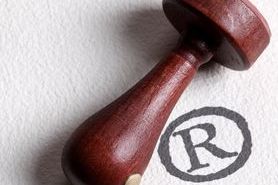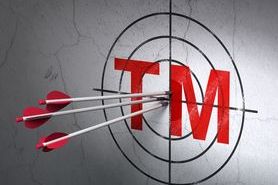What is a trade mark?
Trade marks are valuable business assets - our experts explain what they are and how you can get one
Local businesses, multinationals, charities and celebrities are all owners of trade marks. A trade mark can be any sign that identifies you as the owner of your goods or services to make it clear they belong to you.
It is the badge by which customers find your products or services in the marketplace. The owner of a trade mark has exclusive use of that sign.
Once in use, your trading reputation and goodwill will be attached to your business – making your trade marks some of your most valuable assets. It is a symbol of trust.
What can be a trade mark?
Many things can be registered as a trade mark - names and logos are the most common. A trade mark can be anything that allows consumers to distinguish your goods or services from those of another.
Think about Intel and you will hear a certain jingle, BP will conjure up a particular shade of green and Toblerone is famous for its chocolate peaks. Yes – sounds, colours and shapes can all be registered as trade marks too.
These more unusual trade marks are harder to register, which is one of the reasons why they are less common.
All of the following can be registered:
• Word
• Logo
• Shape
• Position
• Pattern
• Colour (single)
• Colour (combination)
• Sound
• Motion
• Multimedia
• Hologram
A trade mark must be unique, so it cannot be confused for an already registered trade mark. It also cannot be descriptive – so you cannot call your new trainer brand ‘sports shoes’. Likewise you could not call it Pluma – because it could easily be confused for Puma.
Registering your company name or owning a domain name give you virtually no legal rights to stop someone else from using your name or logo.
If you start using a logo or name without registering it as a trade mark and without checking that it is free to use, you risk later finding out about a company with a similar name, or even receiving a letter telling you to stop using your mark because it infringes an already registered trade mark.
You also risk someone else registering it as a trade mark and attempting to stop you from using your own brand name – whilst there may be scope for you to push back on the basis of any goodwill you have accrued via “unregistered rights”, it can be costly and time-consuming to prove you have earlier rights in a mark.
As your reputation grows and you become established, the more likely it is that people will start to copy you. Having the protection from registered trade marks means you can take action to stop this.
Where to register?
Most countries have their own individual trade mark system – and to secure a trade mark you will normally need to apply in each separate country.
The EU has a regional system covering all EU member states, meaning that you can get broad protection from one application. There are pros and cons to each option and it would be best to speak with a Chartered Trade Mark Attorney to discuss what is right for you and your brand.
There is also an international system that will allow you to file in multiple separate countries via a single application. However, the application will need to be processed and examined by each individual country.
In the UK the Intellectual Property Office (UK IPO) is the government body that deals with trade mark registrations.
Once registered you should use the R in a circle to show that your brand is protected. Before registration, you can use the TM superscript to show that you are claiming it as a trade mark.
Getting expert support
Chartered Trade Mark Attorneys (CTMAs) are the legal experts who can help you to navigate trade mark law. They have the professional qualifications and experience to help you protect and maximise your trade mark assets.
They will immerse themselves in your brand – advising on the best commercial and strategic approach within your budget. They will advise you what you can register and where; and will take you through the process from start to finish.
Your CTMA can conduct full searches on your behalf to provide you with advice on whether your chosen trade mark is available for registration in all the territories you require.
They will also be there for you if your registered trade mark is being copied.
Other attorneys run businesses helping you to file, but if you do not see the word “Chartered”, they will not have received the same training and will not be subject to the same high regulatory standards required of CTMAs.
How long does the protection last?
Trade marks must be renewed every 10 years but can in theory last forever. Of course, there are ways in which a trade mark can be removed from the trade mark register. For example if you stop using a trade mark, third parties can apply to have it removed from the register.
Your CTMA will help guide you through and advise you on how to maintain your registration.
What happens if someone copies me?
The more well-known you are, the more likely it is that you will be copied. In the UK the Intellectual Property Enterprise Court is a cost-effective way of resolving trade mark disputes.
Your CTMA will advise you on the action to take, which will usually involve constructive engagement in the first instance to avoid even needing to go to court.
Having a registered trade mark gives you peace of mind to concentrate on growing your business and a valuable asset that you can leverage or sell.
How do I get a trade mark?
Read our five-step guide to take you through the process of registering your trade mark.
Find a Chartered Trade Mark Attorney
Use our directory to find intellectual property legal experts.
Intellectual property explained
Understand more about the different types of intellectual property.
Five reasons to register a trade mark
Discover the importance of a trade mark to your business.





